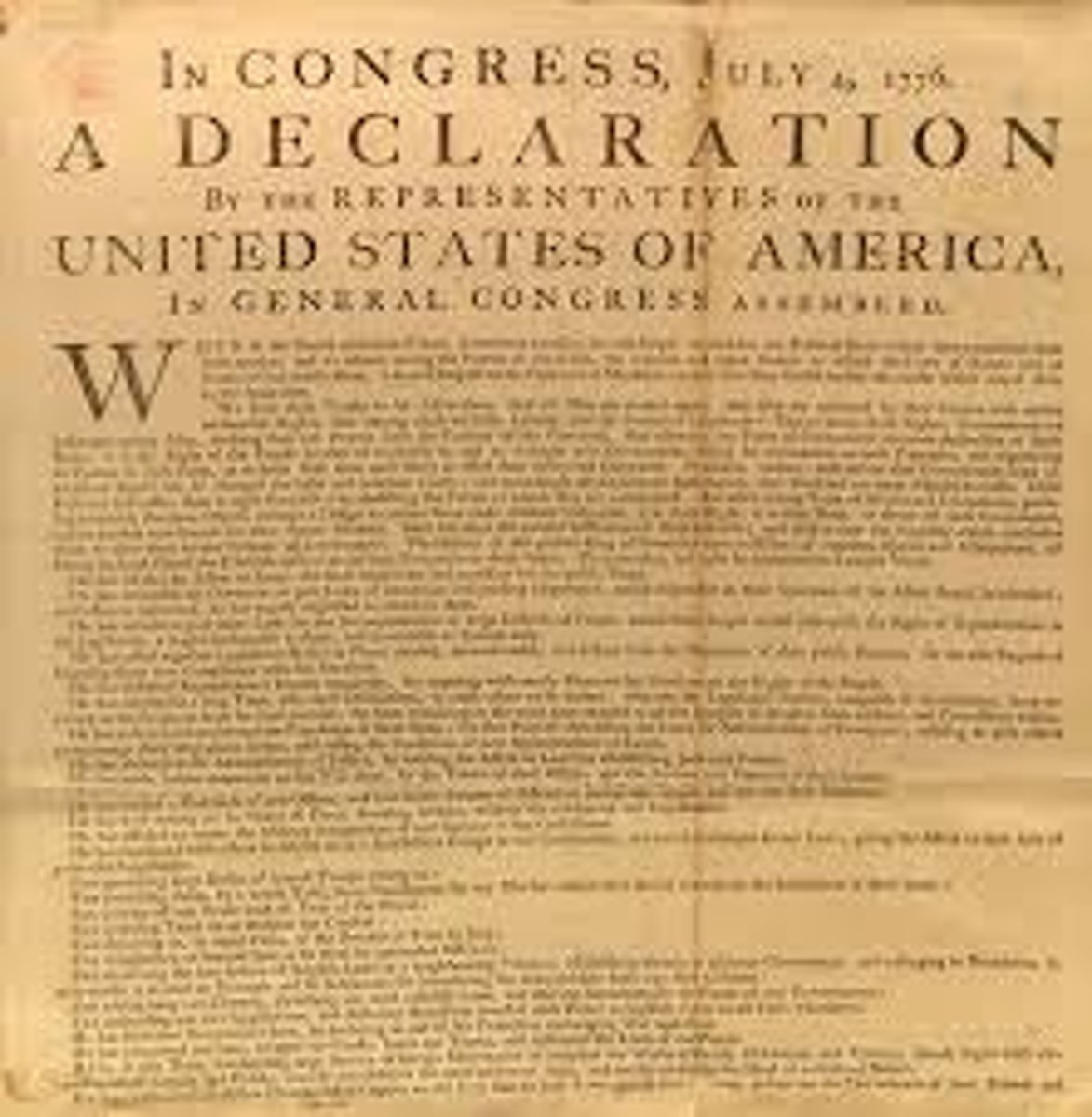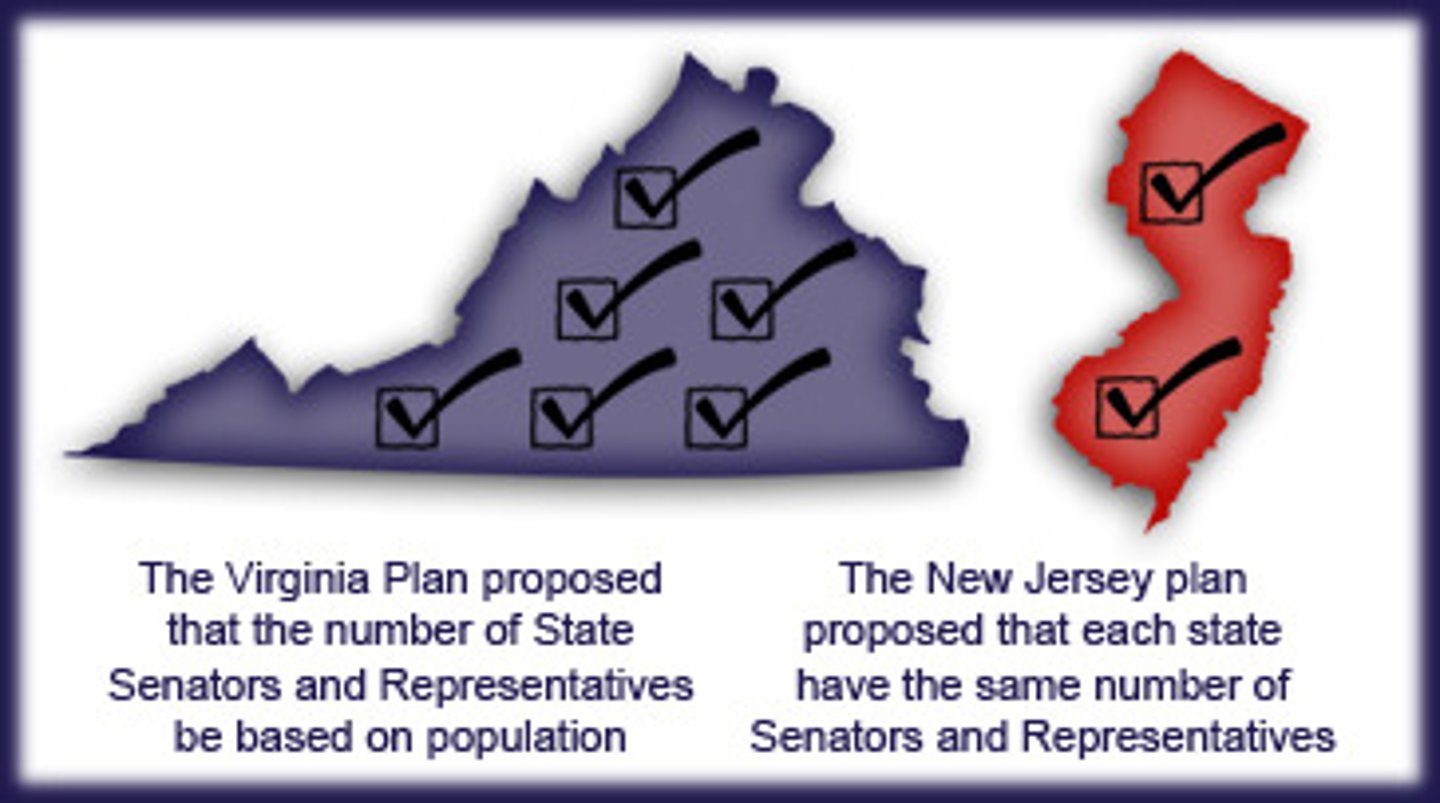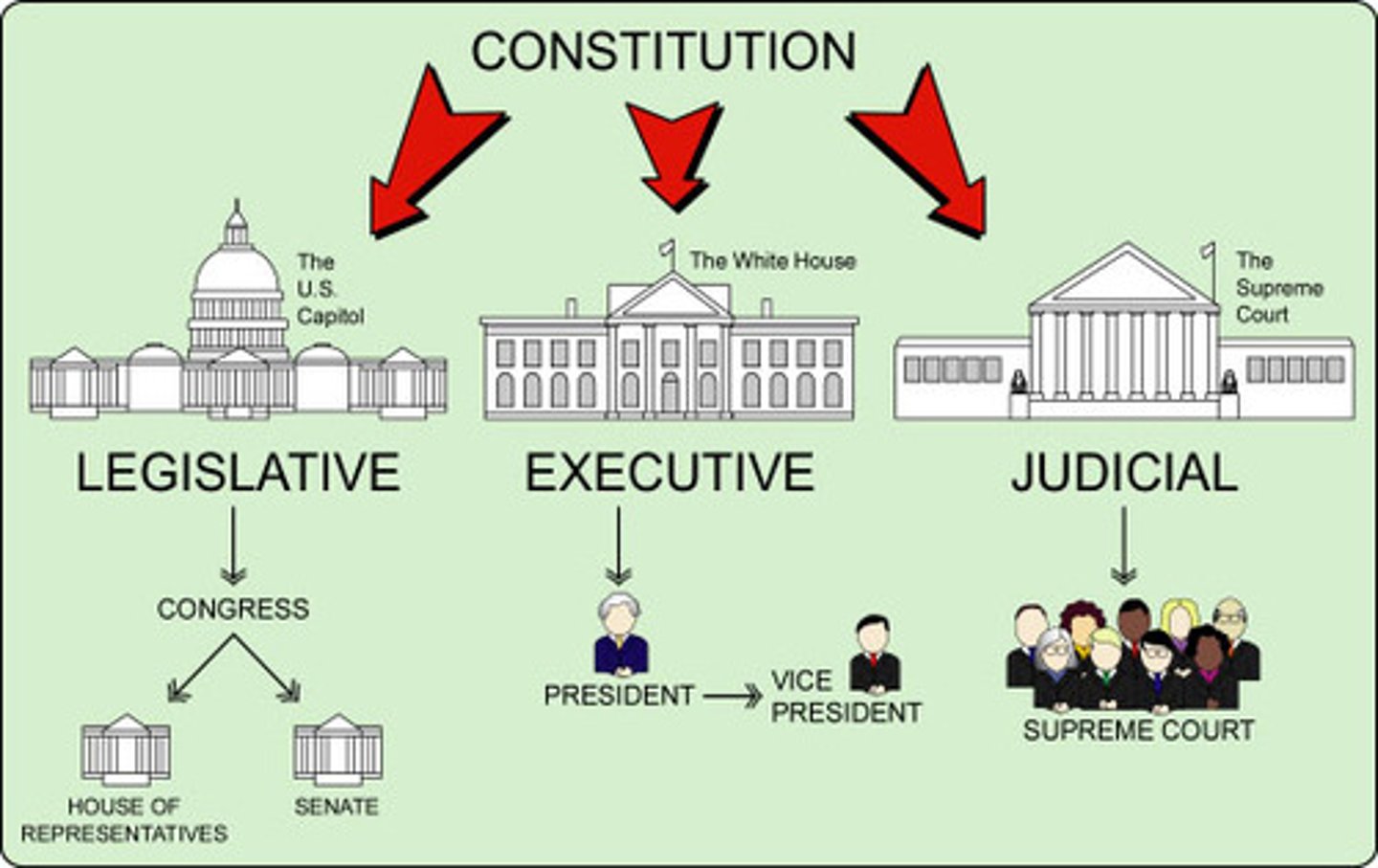POLS 2305 Midterm
1/11
There's no tags or description
Looks like no tags are added yet.
Name | Mastery | Learn | Test | Matching | Spaced |
|---|
No study sessions yet.
12 Terms
Locke's definition of equality and freedom
Equality: if someone violates the law of nature we are all in power and Jurisdiction to punish them
Freedom: You can do what you want with your property and yourself
Locke's view of state of nature, state of war, and civil society
State of Nature: there is no common judge. In the state of nature we have the right to kill each other if we are disturbed.
State of War: is active once the law of nature is violated. exists whether there is or isn't a common judge
Civil Society: Society is the purpose of government, to protect our well being, our property, and govern behavior. takes away high level of uncertainty
Locke's views on consent
Tacent consent: Once you are in a country you must follow the rules
Express consent: Positive engagement, voting, and political participation
The Declaration of Independence as it relates to Locke
Withdrawal of both Express and Tacit consent
-Thomas Jefferson plagiarized the Declaration of Independence from Locke (believed that people were born with natural rights)
-Declaration of Independence states when the people revolt against the government

Early founding documents
1) Declaration of Independence
2) Virginia Plan - house elected by the people, people would vote, who are the people. Argument: the excess of democracy.
Bicameral Legislature: Executive & Judiciary. Executive chosen by Congress, serve 1 term. Judiciary appointed by executive.
Senate elected by the house.
3) Massachusetts Bill of Rights
4) Articles of confederation
5) Federalists/Anti-Federalists paper
Weaknesses of the Articles of Confederation
- It creates an institution that is very informal.
- creates 13 sovereign states, instead of one nation.
- there is no executive committee, a plural executive is appointed by Congress.
•Congress is also weak under the articles: it can declare war, but it CANNOT tax (states were expected to send in their share of debt).
- Did not have the power to tax
- National government could not force the states to obey laws
- No army or navy
- Each state had their own currency
- Unanimous voting
MAINLY!
1. No unified means of commerce or trade
2. No means of funding an army
3. No way to protect domestic tranquility
4 fundamental issues agreed upon by the delegates to the 1787 constitutional convention in Philadelphia
1. Human nature was corrupt
2. Political conflict was between the haves vs. haves not (the delegate protect the haves) unequal distribution of property. Distribution of Wealth.
3. Object of government: protect property
4. Government watching itself (checks and balances & 3 branches of government).
Main debates surrounding the Virginia Plan
1. Whether we should have plural executive
2. Whether the senate should be appointed by the House or states
3. Whether the executive person should be paid
4. Who could vote or who could not (couldn't decide so they left it to the states)
5. What would voting be done by (senate)? (Representation by population or equality)

Arguments from the Anti-federalists and Federalists against constitution
Anti federalists: the state government is being absorbed by const.
Federalists: hamilton makes us safer and richer. Madison no way to control factions, const give you means to control factions.
Govt. have too much power, lost of state sovereignty, despotic government. We the states!
• First Antifederalist calls himself a federal farmer, his main concerns are:
1. It's the first step toward abolishing the state government
2. Is adoption even necessary? (wants A of C).
3. Even though we have some problems now it's because we haven't had time to recover from war.
4. Questions the motives of the framers of the constitution. Supporters exaggerate conditions of the nation
• Federal farmer argues that the constitution need to be changed
• Legislation proposed is too small
• New government has too much powers of the purse and sword.
Objections by Anti-Federalists:
1. Country is too large to be ruled by strong central government.
o Only main difference is where the ultimate sovereignty rests.
2. Constitution proposes a despotic government; proposing to abolish/absorb state governments.
o New congress has both the power of the purse and sword;
o The federal government could pass laws to stop state government from raising their own taxes and then the states starve until they comply.
o Necessary and proper clause: lists all the enumerated powers of congress, and them whatever else is necessary; this means congress could do anything they want. COUPLED W/SUPREMACY
o "We the PEOPLE" that one word shifts sovereignty from the states to the majority.
3. Constitution is not calculated to ensure state sovereignty.
o Number of representatives is too few, and terms are too long.
o Madison says: constitution is going to be better at thwarting the tyranny of the majority. They believed all policy was between the have and have not. More have not; less powers for them, wanted less power, less rep.
• Patrick Henry is against constitution main argument. He says that the constitution is an attack on state sovereignty; it sets one nation that will abolish the states.
o Evidence: Preamble: "We the STATES" why should
o Lost sovereignty of states will be loss of civil liberties. (original constitution unamended).
o Eventually federal government could negate state governments.
o States will be abolished because government has unbound power to tax, and unnecessary and proper clause, which negate any rights the state still have.
Hamilton's arguments for the necessity of the constitution
Safe :
-Insure union
- build a navy
- raise army
-domestic safety
Rich/make money:
-combine resources
-generate revenue
-regulate trade
- common currency
Arguments for "Widening the Sphere" and separation of powers (Federalist #10)
-We can't get rid of factions (it will take away our freedoms if we do)
-Factions= # of citizens together with a common idea acting upon something
-"Widening the Sphere"= Large spaces with a mixture of ideas (Anti-gerrymandering) so we can the modern laws
-A little bit closer to the ultimate goal & it controls the effect of factions
-Separation of Powers: Executive, Legislative, and Judicial
- check and balances

Apply arguments from Anti-federalist and Federalist to contemporary examples.
Examples for Anti-federalist: debates between states over controversial issues (such as abortion) Examples for Federalist: No Child left behind, etc.